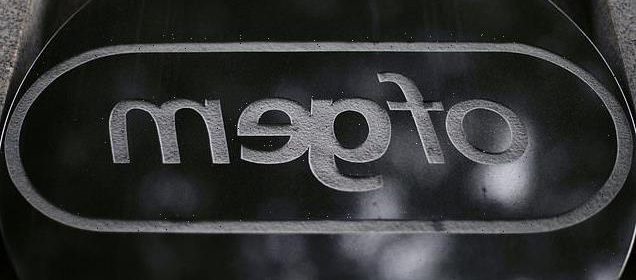Fixed-rate energy deals are set to break £3,000 barrier

Fixed-rate energy deals are set to break £3,000 barrier as Ofgem warns of a ‘significant’ increase in bills due to ‘unprecedented’ rise in wholesale gas prices
- The cost of some fixed-rate energy deals hit almost £3,000 yesterday
- Ofgem chief executive warns of ‘unprecedented’ rise in wholesale gas prices
- Households should expect large increase in bills when energy cap is reviewed
The cost of some fixed-rate energy deals hit almost £3,000 yesterday as the regulator warned of a ‘significant’ increase in bills when the price cap is reviewed.
Ofgem chief executive Jonathan Brearley warned some of the ‘unprecedented’ rise in wholesale gas prices would have to be ‘passed through’ to consumers.
Households should expect a large increase in their bills when the energy cap – currently at £1,277 – is next reviewed in April, he said.
But Mr Brearley also suggested the regulator could adjust the cap more regularly in future to prevent energy providers going out of business when there is a sudden surge in costs.
The cost of some fixed-rate energy deals hit almost £3,000 yesterday as the regulator warned of a ‘significant’ increase in bills when the price cap is reviewed
Asked about a rise in bills in April, he said the shift in prices had been ‘phenomenal and unprecedented’.
‘The wholesale market has gone up and down extremely quickly so we can’t predict fully what that will be,’ he added. ‘But looking at the costs that are in the system, we are expecting a significant rise in April.’
With gas prices so unstable, there are now only a handful of fixed deals available. The most expensive one-year tariffs from Together and Bristol Energy, which are ‘green’ deals, would cost the average household £2,991 – an incredible £1,714 more than the price cap.
The priciest non-green tariff was from Scottish Power at £1,907, some £630 more than the current limit. Even the cheapest fixed deal on offer, a green tariff from GE, was £495 more expensive at £1,772.
Ofgem chief executive Jonathan Brearley (pictured) warned some of the ‘unprecedented’ rise in wholesale gas prices would have to be ‘passed through’ to consumers
Ordinarily at this time of year, experts would be encouraging customers to switch to a cheap fixed energy deal.
But as the gas crisis escalates, households are being urged to stay put on their supplier’s default gas and electricity deal so they are protected by the energy watchdog’s price cap.
Remaining on a firm’s standard variable tariff was previously the most expensive way to pay for power and customers could often save hundreds of pounds a year by switching.
But this year, there are no fixed deals cheaper than the price cap. Experts accused suppliers, many of which are struggling to stay afloat, of exploiting customers’ panic to push expensive fixed deals.
Scott Byrom, of the comparison site TheEnergyShop, said: ‘We’re hearing from customers that they are being told about longer-term fixed tariffs rather than suppliers actively pushing standard tariffs.
‘This is very concerning. Suppliers should be flagging to customers clearly that this is the cheapest deal rather than playing to consumer fear and pushing heavily priced fixed deals.’
Dozens of suppliers are at risk of being crippled by the energy price crisis, with 12 already going bust this year.
Some firms, including the UK’s second largest supplier Ovo, are now refusing to take on any new customers, which may be in breach of Ofgem’s rules. Bulb, which has 1.7million customers, has stopped accepting customers online and will only take requests by phone.
Comparison sites, some of which are operating again after temporarily halting their services, are compounding confusion among households by advertising deals that are not available to new customers.
Households should expect a large increase in their bills when the energy cap – currently at £1,277 – is next reviewed in April, he said (stock image)
The energy market is in chaos after wholesale gas prices soared to a record high, rising by 40 per cent on Wednesday. It means many firms cannot afford to continue supplying customers who signed up to their cheapest deals months ago.
James Daley, of the consumer group Fairer Finance, said: ‘Shopping around is not the no-brainer it was once was and weathering the current storm by sitting on a standard variable tariff is probably the safest course of action.
‘The market is extremely volatile and we don’t know how many suppliers will collapse in the next few months. But if your firm does go bust you won’t be cut off or lose any of your credit balance.’
A spokesman for Together and Bristol Energy denied the firms were ‘pushing sales’.
‘The price of the fixed-term deal we have in the market represents the current cost of energy and reinforces how the price cap is protecting consumers,’ he said.
Ofgem said: ‘We are looking at all market developments.’
Source: Read Full Article



